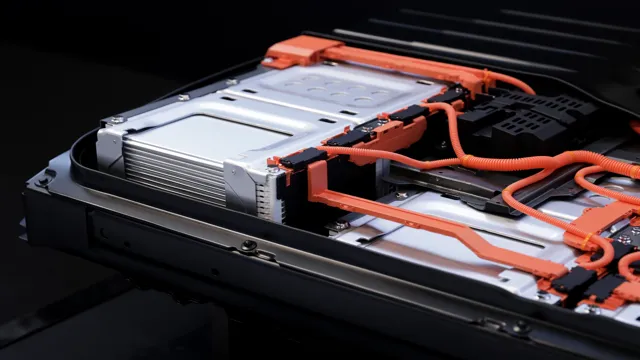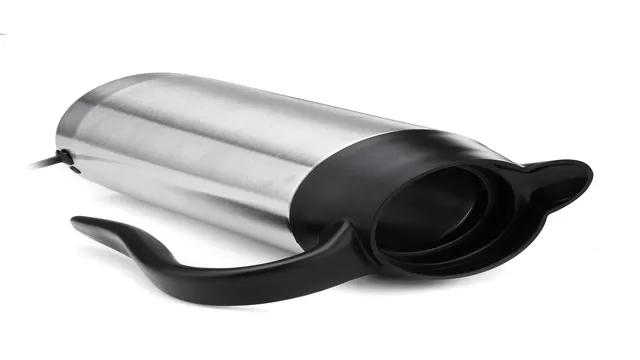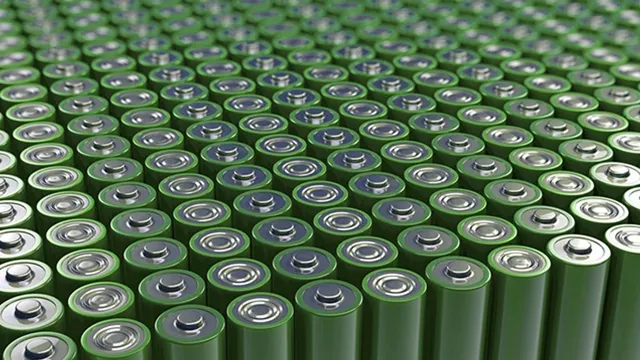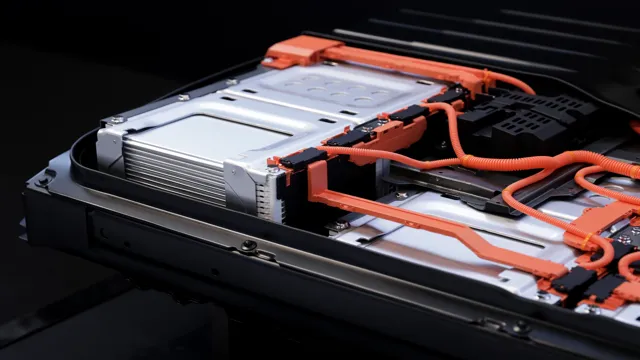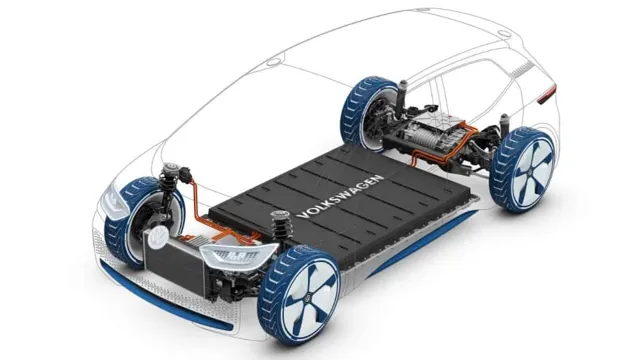Revolutionizing Transportation: Exploring the Future of Electric Car Battery Alternatives
Electric cars have become increasingly popular in recent years, thanks to the environmental benefits of reduced emissions and renewable energy sources. However, electric car batteries are not without their drawbacks. They can be expensive to replace and can take a significant amount of time to recharge fully.
But fear not, there are alternatives to electric car batteries that could revolutionize the way we think about electric vehicles. From hydrogen fuel cells to kinetic energy recovery systems, there are various options available to power electric cars without relying on traditional batteries. Let’s take a closer look at some of these alternatives and see how they stack up against the trusty battery.
Hydrogen Fuel Cells
Are you tired of the limitations of electric car batteries? Well, hydrogen fuel cells may be the perfect solution for your needs. With an electric car running on traditional batteries, you could be limited in the distance you travel due to the limited amount of energy storage. However, hydrogen fuel cells generate electricity from a chemical reaction between hydrogen and oxygen, producing only water vapor as a byproduct.
This means that your car could have a much longer range, equal to or greater than that of a gasoline-fueled car, without the negative environmental impact. Additionally, hydrogen fuel cells have the benefit of being lighter and more efficient than traditional batteries, allowing you to optimize your car’s performance. While still not as widely available as gasoline stations, the development of a hydrogen infrastructure is rapidly growing, making this technology a viable alternative to traditional electric car batteries.
Embracing hydrogen fuel cells as an electric car battery alternative could be the future of transportation.
Efficiency of Fuel Cells vs. Batteries
When it comes to the efficiency of fuel cells vs. batteries, hydrogen fuel cells are a popular contender. These cells offer a much higher efficiency level than traditional batteries.
While batteries are limited by the amount of energy they can store, fuel cells can generate electricity continuously as long as they have a source of hydrogen. This makes them a great choice for high-energy applications such as powering vehicles and large machinery. While fuel cells may require a bit more initial investment, they offer a viable long-term solution for businesses and individuals looking to reduce their carbon footprint and save money on energy costs.
Overall, hydrogen fuel cells offer a promising future for sustainable energy solutions.
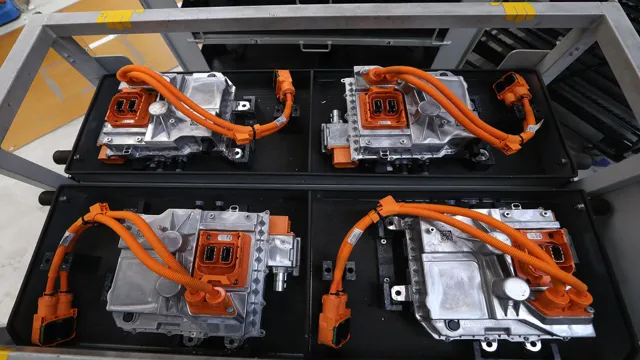
Current State of Hydrogen Infrastructure
Hydrogen Fuel Cells The current state of hydrogen infrastructure is a topic of great interest in the scientific and environmental communities. Hydrogen fuel cells are becoming an increasingly popular alternative to traditional gasoline engines due to their lower environmental impact and potential for lower operating costs. However, the lack of infrastructure for hydrogen fueling stations remains a major obstacle to widespread adoption of this technology.
Currently, there are only a few hundred publicly accessible hydrogen fueling stations worldwide, with the majority located in Japan and California. This lack of infrastructure limits the range of hydrogen vehicles and makes it difficult for people to consider them as a viable transportation option. However, as more automakers and governments invest in the technology, there is hope that the infrastructure will catch up with demand.
It’s time for the world to embrace hydrogen fuel cells and focus on a future of cleaner, more sustainable transportation powered by this revolutionary technology.
Solar-Powered Cars
Electric car battery alternatives have been gaining popularity as people search for more sustainable and eco-friendly ways to travel. One such alternative is solar-powered cars. These vehicles are designed to utilize the energy from the sun to charge their batteries instead of relying solely on charging stations.
Solar panels are installed on the roof and hood of the car, absorbing sunlight and converting it into energy through a process called photovoltaic conversion. While solar-powered cars may not be suitable for long road trips due to limited range and charging time, they are a great option for short commutes and city driving. They also provide a cost-effective and renewable way to power your vehicle, reducing your carbon footprint and helping to support a cleaner environment.
As the world continues to shift towards a more sustainable future, it’s exciting to see innovative solutions like solar-powered cars leading the way.
Advantages of Solar-Powered Cars
Solar-powered cars are the future of the automobile industry, and they have a myriad of advantages over traditional gasoline-powered vehicles. Firstly, they are environmentally friendly and reduce carbon emissions, thus helping to mitigate the effects of climate change. The cost of producing and maintaining a solar-powered car is less than that of a gas-powered car, making them an economical choice for car owners.
Additionally, solar-powered cars provide a quieter ride and lower the noise pollution in cities. Solar energy is also a renewable and sustainable source of energy, thus ensuring that electricity generation is made cleaner and more sustainable. Most importantly, the use of solar-powered cars helps to reduce our dependence on fossil fuels, which are finite resources.
In conclusion, solar-powered cars offer numerous advantages over traditional gasoline-powered vehicles, making them the ideal choice for a cleaner, more sustainable future.
Challenges and Limitations
When it comes to solar-powered cars, there are definitely some challenges and limitations that need to be addressed. Firstly, the issue of energy storage is a major one. Solar panels can only generate energy when exposed to sunlight, meaning that if the car is driven on a cloudy day or at night, the battery will need to rely on stored energy.
This can lead to a lack of range and time-consuming recharging. Additionally, solar panels currently aren’t efficient enough to generate the amount of power needed for a car to travel long distances at high speeds. This means that solar-powered cars are typically slower and have a shorter range than traditional gasoline-powered vehicles.
However, advancements in technology and ongoing research are constantly improving the capabilities of solar-powered cars. With continued progress, it’s possible that one day solar-powered cars will be a truly viable option for everyday use.
Lithium-Ion Capacitors
Electric car battery alternatives have become a hot topic in recent years, with many seeking more sustainable and cost-effective options. One promising solution is the lithium-ion capacitor. These capacitors combine the high energy density of lithium-ion batteries with the high power density of traditional capacitors.
This means they can charge quickly and provide bursts of power, making them ideal for electric vehicles. Not only are they more efficient than traditional batteries, but they also have a longer lifespan and are better for the environment. While lithium-ion capacitors are still in the early stages of development, they have the potential to revolutionize the electric car industry and help us move towards a more sustainable future.
How Capacitors Work
Capacitors are an essential component when it comes to storing and releasing electrical energy. There are several types of capacitors available in the market, and one of them is the Lithium-Ion capacitor. Unlike traditional capacitors, Lithium-Ion capacitors utilize an electrolyte instead of a dielectric to store energy.
This allows for a much higher energy density, allowing these capacitors to store and release energy more efficiently. They also have a longer lifespan due to the use of lithium-ion technology. Lithium-Ion capacitors are becoming increasingly popular in the automotive industry due to their ability to power electric cars and other vehicles.
With their high energy density and long lifespan, Lithium-Ion capacitors are a promising technology for the future.
Benefits and Drawbacks of Lithium-Ion Capacitors
Lithium-Ion Capacitors (LICs) Lithium-ion capacitors (LICs) are a relatively new energy storage technology that combine the high energy density of lithium-ion batteries with the high power density of supercapacitors. This makes them a promising solution for a range of applications, including electric vehicles, renewable energy systems, and consumer electronics. Some benefits of LICs include high energy and power densities, a longer lifespan than most batteries, and the ability to charge and discharge rapidly.
However, there are also some drawbacks to LICs, such as limited energy storage capacity, higher cost compared to traditional capacitors, and a tendency to lose their charge over time. Nonetheless, the advantages of LICs make them a promising choice for many energy storage applications.
Conclusion
In conclusion, when it comes to finding an electric car battery alternative, there’s no need to be shocked! With advancements in technology, we’re exploring new possibilities such as solid-state batteries, hydrogen fuel cells, and even solar-powered cars. So let’s charge ahead toward a greener future and continue to spark innovation in the automotive industry!”
FAQs
What are some alternatives to electric car batteries?
Some alternatives to electric car batteries include hydrogen fuel cells, compressed air energy storage, and flywheel batteries.
How do hydrogen fuel cells work as an alternative to electric car batteries?
Hydrogen fuel cells work by combining hydrogen gas with oxygen from the air to produce electricity, with water as the only byproduct.
Is compressed air energy storage a viable alternative for electric car batteries?
Yes, compressed air energy storage involves compressing air and storing it in a tank, which can then be released to power a turbine and generate electricity.
What are the advantages of using flywheel batteries as an alternative to electric car batteries?
Flywheel batteries have the advantage of high energy density, fast energy response, and long lifespan, making them a promising alternative for electric car batteries.
